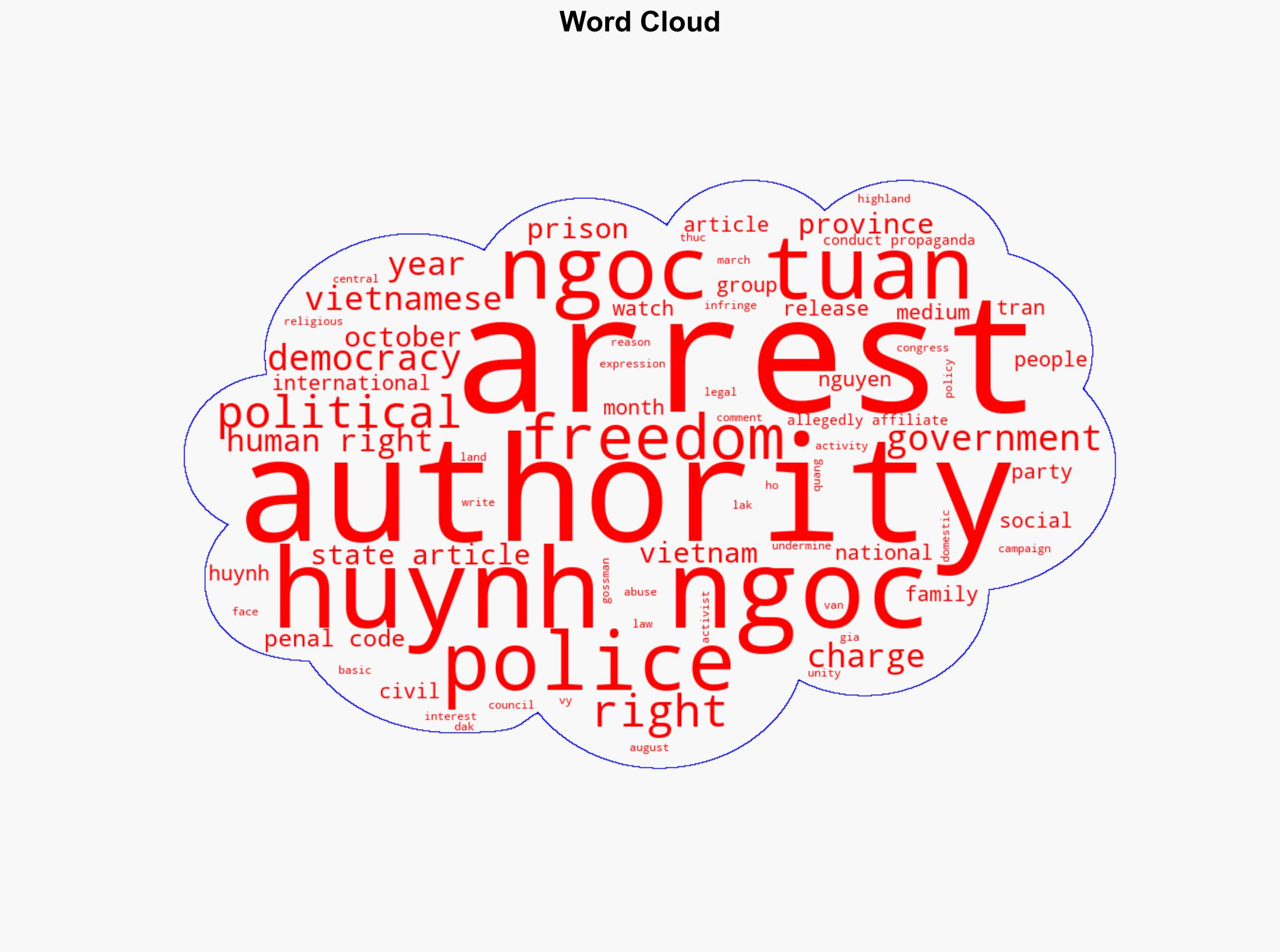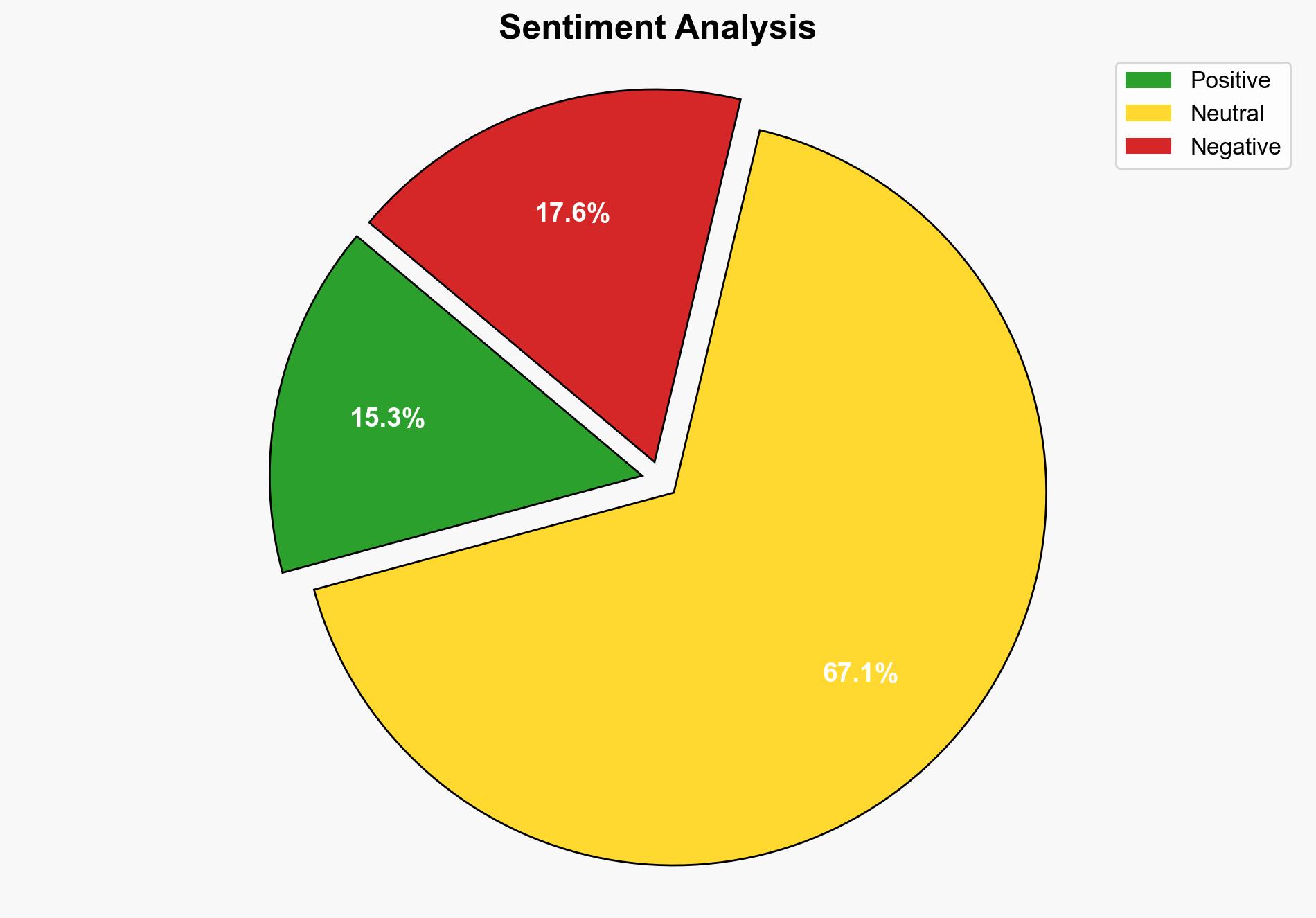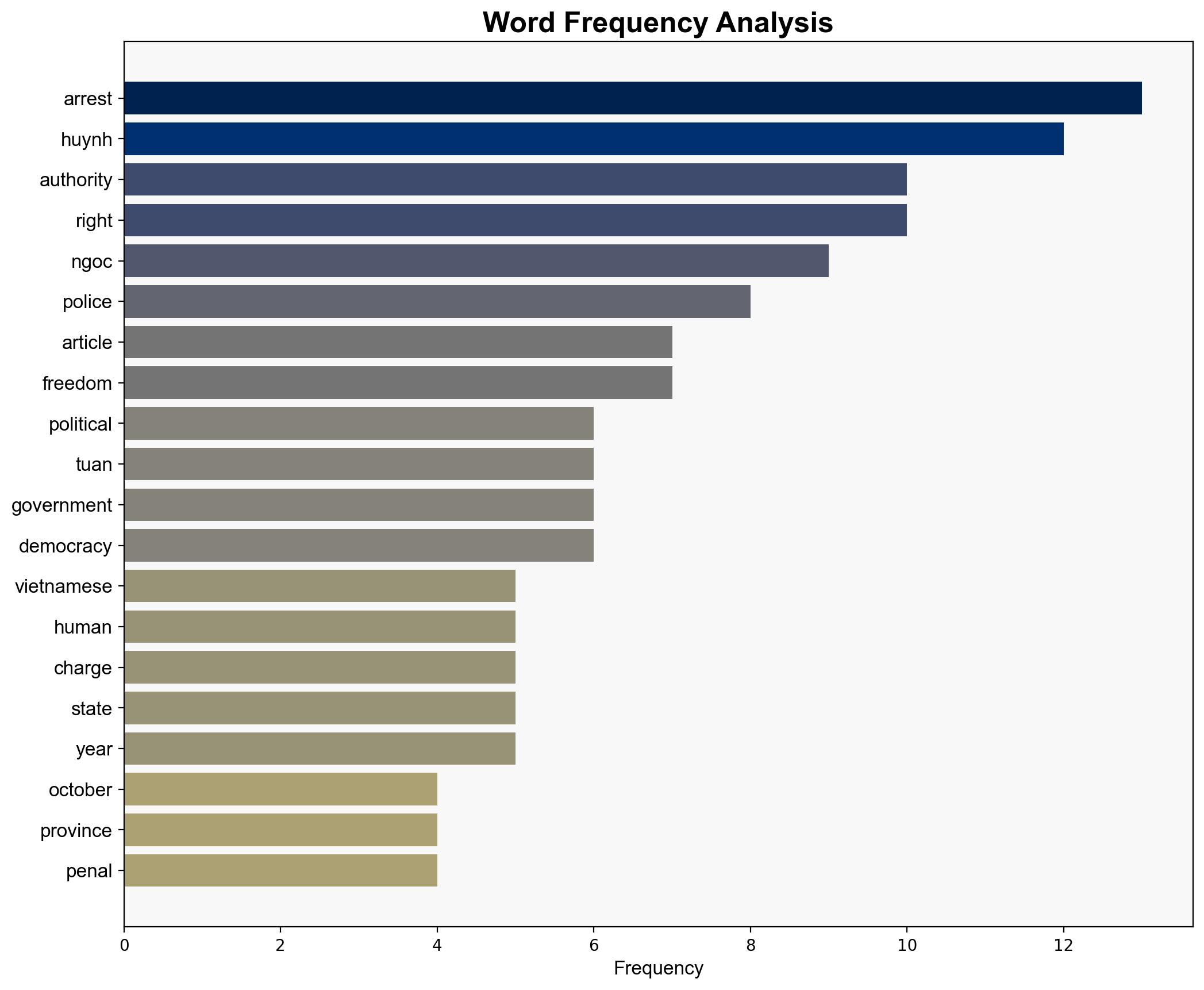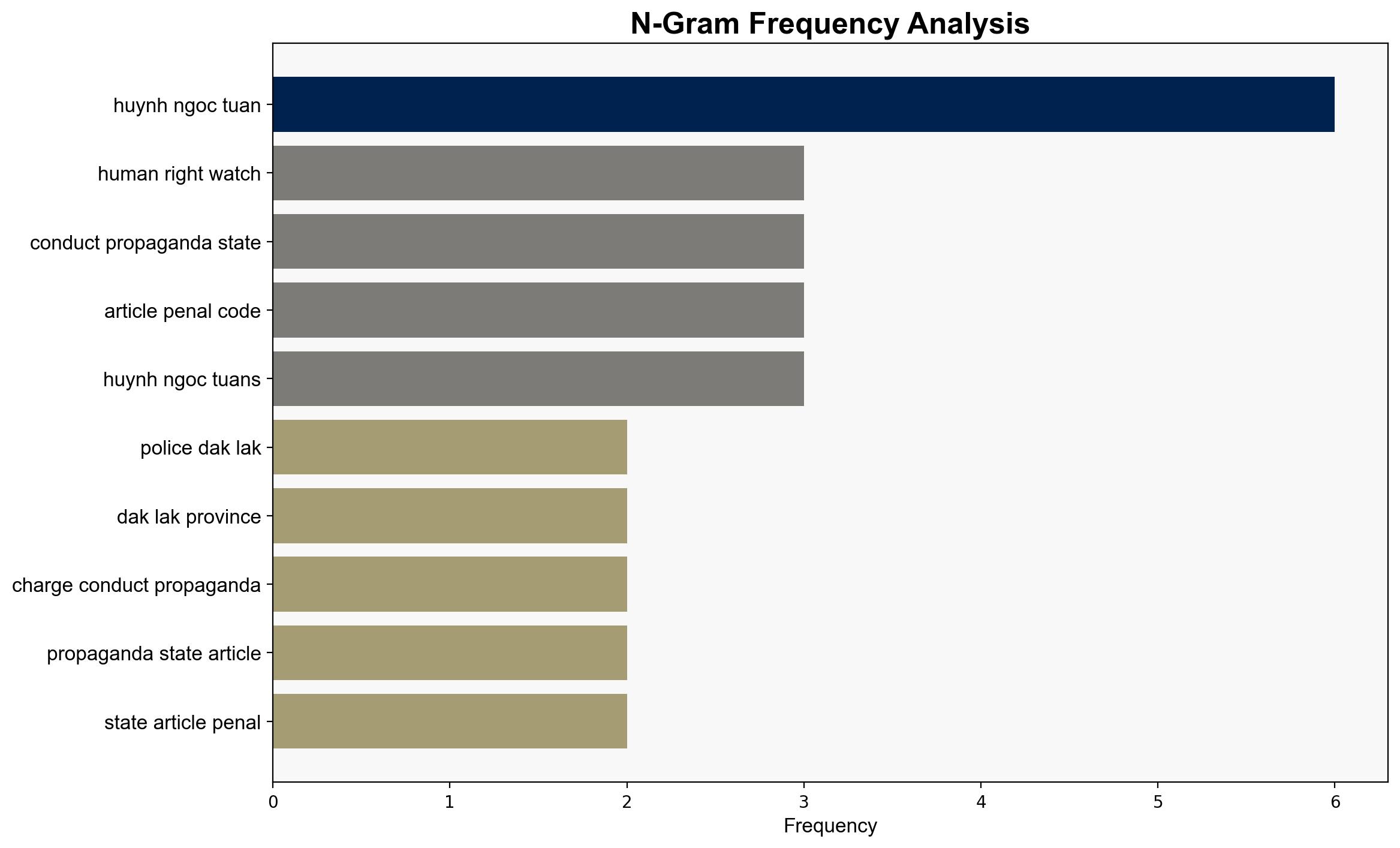Vietnam Former Political Prisoner Rearrested – Human Rights Watch
Published on: 2025-10-21
Intelligence Report: Vietnam Former Political Prisoner Rearrested – Human Rights Watch
1. BLUF (Bottom Line Up Front)
The arrest of Huynh Ngoc Tuan suggests a strategic pattern of intensified government suppression of dissent ahead of significant political events in Vietnam. The most supported hypothesis is that the Vietnamese government is systematically targeting dissidents to prevent disruption during the upcoming Communist Party Congress and national elections. Confidence level: Moderate. Recommended action: Monitor further arrests and international responses to assess the potential for increased domestic unrest or international diplomatic pressure.
2. Competing Hypotheses
1. **Hypothesis A**: The Vietnamese government is intensifying its crackdown on dissent to ensure political stability and control ahead of the Communist Party Congress and national elections. This hypothesis is supported by the timing of the arrests and the targeting of individuals with a history of political activism.
2. **Hypothesis B**: The arrest of Huynh Ngoc Tuan and others is part of routine enforcement of existing laws against activities deemed as propaganda against the state, with no direct link to upcoming political events. This hypothesis considers the arrests as isolated incidents rather than a coordinated strategy.
Using Analysis of Competing Hypotheses (ACH), Hypothesis A is better supported due to the pattern of arrests coinciding with significant political timelines and the historical context of suppressing dissent during such periods.
3. Key Assumptions and Red Flags
– **Assumptions**: It is assumed that the Vietnamese government views dissent as a direct threat to political stability. The hypothesis also assumes that international pressure has limited influence on Vietnam’s internal policies.
– **Red Flags**: The lack of transparency in the legal proceedings and denial of legal counsel for detainees. The potential bias in reporting from Human Rights Watch, which may emphasize narratives of persecution.
– **Blind Spots**: Limited information on the internal decision-making processes within the Vietnamese government and the potential influence of international diplomatic relations.
4. Implications and Strategic Risks
The pattern of arrests could lead to increased domestic unrest, particularly if perceived as unjust by the populace. Internationally, this may strain Vietnam’s diplomatic relations, especially with countries prioritizing human rights. There is a risk of cascading effects, where increased suppression leads to greater dissent and potential cyber or economic sanctions from international actors.
5. Recommendations and Outlook
- Monitor further arrests and the international community’s response to gauge the potential for diplomatic fallout.
- Engage with regional partners to discuss coordinated diplomatic approaches to address human rights concerns in Vietnam.
- Scenario Projections:
- **Best Case**: Vietnam moderates its approach following international diplomatic engagement, reducing domestic unrest.
- **Worst Case**: Intensified crackdowns lead to significant domestic unrest and international sanctions, destabilizing the region.
- **Most Likely**: Continued arrests with limited international response, maintaining current levels of domestic and international tension.
6. Key Individuals and Entities
– Huynh Ngoc Tuan
– Huynh Thuc Vy
– Nguyen Ayun
– Vo Thi Phung
– Nguyen Duy Niem
7. Thematic Tags
national security threats, human rights, political dissent, regional focus





